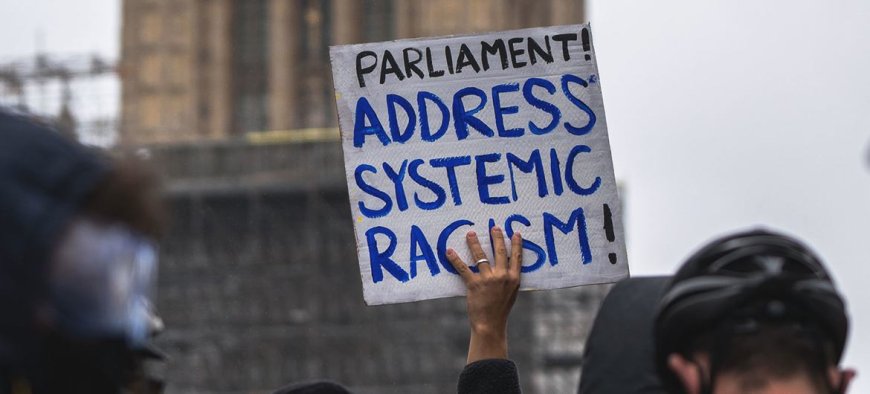Stark Racial Disparities Persist in UK Juvenile Justice System

By Pazooki
New data has revealed alarming racial disparities within the UK’s juvenile justice system, exposing the severe and disproportionate impact on Black children, who are significantly more likely to be arrested, stopped, and incarcerated than their White counterparts.
Racial disparities within the UK criminal justice system are alarmingly pronounced, particularly for Black children, who face disproportionate treatment at every stage. According to recent data, Black children are four times more likely to be arrested and three times more likely to be stopped and searched compared to their White peers. Despite comprising only 4% of 10- to 17-year-olds in the population, they make up nearly 50% of those held on remand. Even more striking is the fact that nearly one in three youths in custody is Black, highlighting a systemic racial bias that continues to plague the criminal justice system. These troubling statistics reflect a long-standing issue, consistently flagged by key reports and inquiries, including the Macpherson and Lammy reviews, which have called for urgent reforms.
UK Sees Record Number of Child Arrests for Terrorism in 2023
In 2023, the UK saw a record number of children arrested in connection with alleged terrorism offenses, with over 40 minors under the age of 17 detained—the highest figure since records began more than 20 years ago. Official data from the Home Office reveals that out of the 219 total arrests for terrorism-related activities last year, 42 involved children, marking a significant increase from 32 child arrests in 2022. This surge in child arrests has raised alarm, with Labour's Shadow Home Secretary Yvette Cooper describing the figures as "alarming" and urging for urgent measures to prevent young people from being drawn into extremist ideologies.
Overall, the 219 terrorism-related arrests in 2023 represent a nearly 31% increase from the 167 arrests in 2022, making it the highest annual total since 2019 when 282 suspects were detained. Of those arrested in 2023, 28% were charged, while 21% were released without charge, and 12 individuals faced alternative actions such as cautions or recalls to prison. The majority of those arrested were British nationals, with 71% holding UK citizenship or dual nationality.
Arrests of Scottish Children Rise Amid Calls to Raise Criminal Responsibility Age
In the past year, more than 1,300 children, some as young as 12, have been arrested across Scotland, representing a 9% rise in youth detentions. The alarming figures, which reveal that an average of four under-16s are taken into custody daily, come as Scotland considers raising the age of criminal responsibility from 12 to 18. The surge in arrests—1,350 in 2023-24, up from 1,243 the previous year—has sparked calls for a thorough investigation into the underlying causes. The data, highlighting hotspots like Greater Glasgow, where 401 arrests were made, has drawn significant concern from policymakers. Liberal Democrat justice spokesperson Liam McArthur and Tory deputy justice spokesperson Sharon Dowey have both urged the Scottish Government to intensify efforts to prevent youth from entering the criminal justice system.
The debate over youth crime in Scotland is particularly poignant given the recent shift in the country’s legal framework. Under current Scots law, children under 12 cannot be arrested or prosecuted, a change implemented in 2021 when the age of criminal responsibility was raised from eight to 12. The figures also reignite concerns over the strain on police resources, with critics highlighting the impact of budget cuts on the ability of law enforcement to manage rising youth crime. The Scottish Government, however, points to a dramatic 92% reduction in youth prosecutions since 2008, attributing it to a focus on prevention and addressing the root causes of harmful behavior. As discussions continue, the data serves as a stark reminder of the challenges faced in balancing justice and rehabilitation for Scotland’s youth.
The UK juvenile justice system is fraught with significant failures that have led to stark racial disparities and troubling outcomes, particularly for Black children who face systemic bias at every stage. Despite comprising only a small percentage of the youth population, Black children are disproportionately more likely to be arrested, stopped, searched, and incarcerated, with recent data showing they are four times more likely to be arrested and three times more likely to be stopped and searched compared to their White peers. This racial bias has been consistently highlighted in key reports like the Macpherson and Lammy reviews, yet the justice system has failed to implement the necessary reforms, allowing these disparities to persist and contributing to the ongoing marginalization and distrust among minority communities. The system's emphasis on criminalization over rehabilitation, evidenced by rising child arrests, including for terrorism-related offenses and youth crime in Scotland, reflects a broader failure to address the root causes of criminal behavior. This punitive approach exacerbates the long-term impact on young people's lives, perpetuating a cycle of disadvantage rather than breaking it. Moreover, the justice system has been inconsistent in applying legal standards, with Scotland's recent increase in the age of criminal responsibility highlighting a broader struggle in effectively managing and rehabilitating young offenders. The reliance on punitive measures, the failure to address underlying social and economic factors, and the inability to implement meaningful reforms all underscore the justice system's shortcomings, contributing to the troubling disparities and outcomes that continue to affect the lives of many young people in the UK.












































